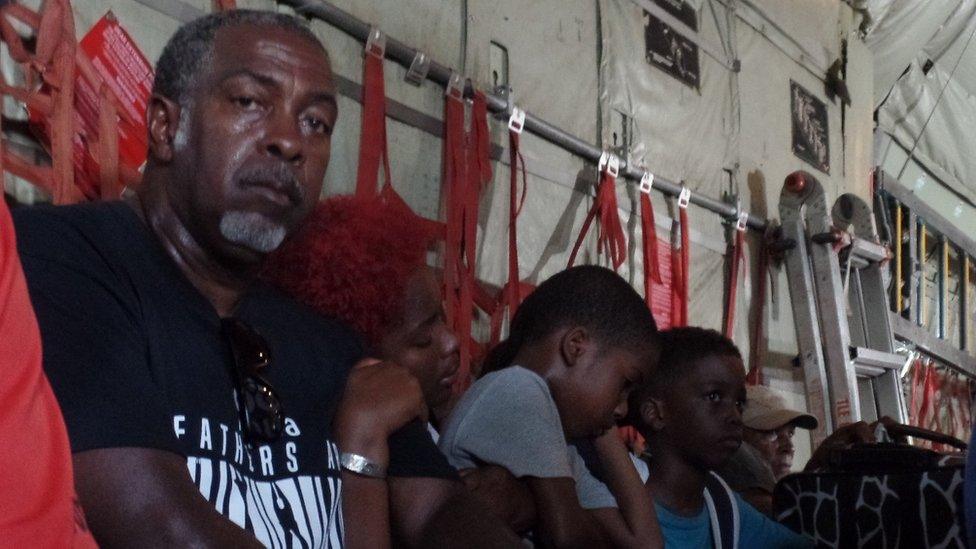Hurricane Irma: Florida launches huge relief operation
- Published
Strong winds and rain have been battering Florida
Relief operations are under way in Florida, as the extent of the damage from Hurricane Irma becomes clear.
More than 6.5m homes - two-thirds 62% of the state - are without power. Many parts of the state have been flooded
The islands of the Florida Keys and western parts of the state bore the brunt of Irma - which hit the state as a category four hurricane on Sunday before weakening to a tropical storm.
Media reports link at least four deaths to the storm in the Florida.
It cut a devastating track across Caribbean islands, killing at least 37 people there.
Florida Governor Rick Scott said it was "going to take some time" before people could return to their homes, the Miami Herald website reports, external.
Speaking as he went on an aerial tour of the Keys to survey the damage early on Monday, he said: "Power lines are down throughout the state. We've got roads that are impassable, so everybody's got to be patient as we work through this."
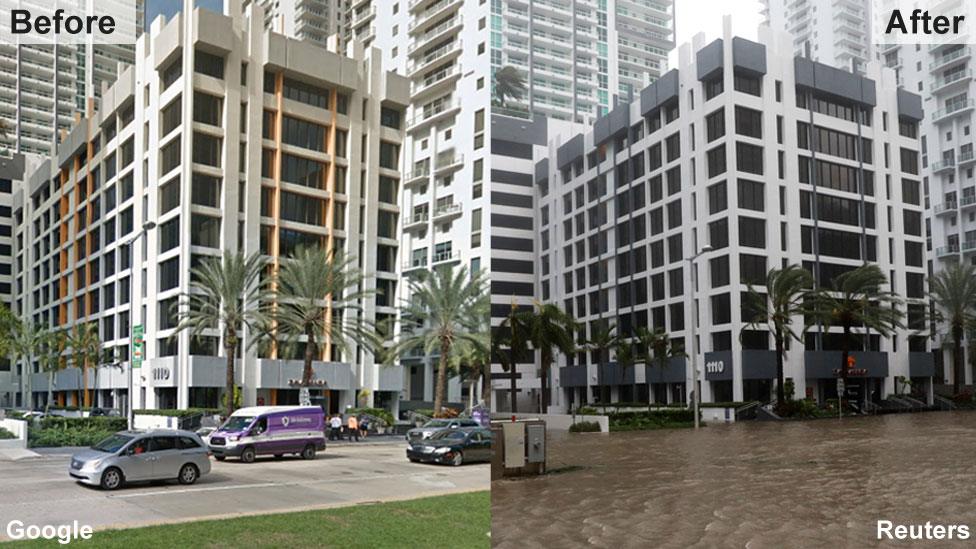
Before and after in Brickell, Miami
All eyes on the Keys
By Jane O'Brien, BBC News, Miami
Miami dodged a bullet by and large. The eye of the storm did not hit the city but it did wallop the Florida Keys, of course, and that is where the concern is now.
Communications were pretty bad even on Friday. A number of people who had fled the Keys and checked into our hotel were struggling to keep in touch with relatives who had decided to stay behind.
Reports say that 10,000 people decided to ride out the storm. We do not know what state they are in now.
The first job rescue services will have to do is to test the integrity of the 42 bridges linking the Keys. If one of those is down, it could cause problems because it could strand any one of the islands.
The entire Keys are closed. There is no way of getting in there at the moment while the authorities assess the damage.
How badly did Irma hit the Florida Keys?
How big will the disaster response be?
Although Miami was spared the brunt of the storm, large parts of the city are under water. Winds have snapped power lines and 72% of homes there are without electricity, officials say.
On the west coast of Florida, drone footage from Naples, external, a town on the coast of the Gulf of Mexico about 125 miles (200km) to the north-west, shows rows of shattered suburban homes on streets under water.

President Donald Trump has released emergency federal aid for Florida, describing the hurricane as a "big monster".
Funds will be needed to care for victims, clean up debris, restore power, and repair damage to homes and businesses.
Martin Senterfitt, emergency management director for Monroe County, said a huge airborne mission was in the works, the Miami Herald reports, external.
"Disaster mortuary teams", he said on Sunday, would be dispatched to the Keys, which are part of Monroe.
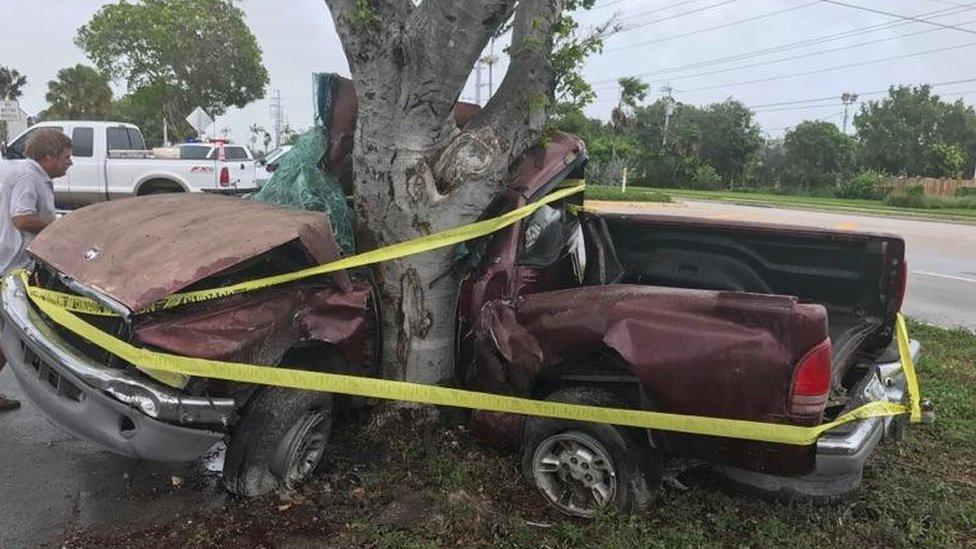
A number of fatal car crashes in Florida are being linked to the storm
Where is the storm now?
At 12:00 GMT, the centre of the storm was about 105 miles (170km) north of Tampa, the National Hurricane Center (NHC) said, external.
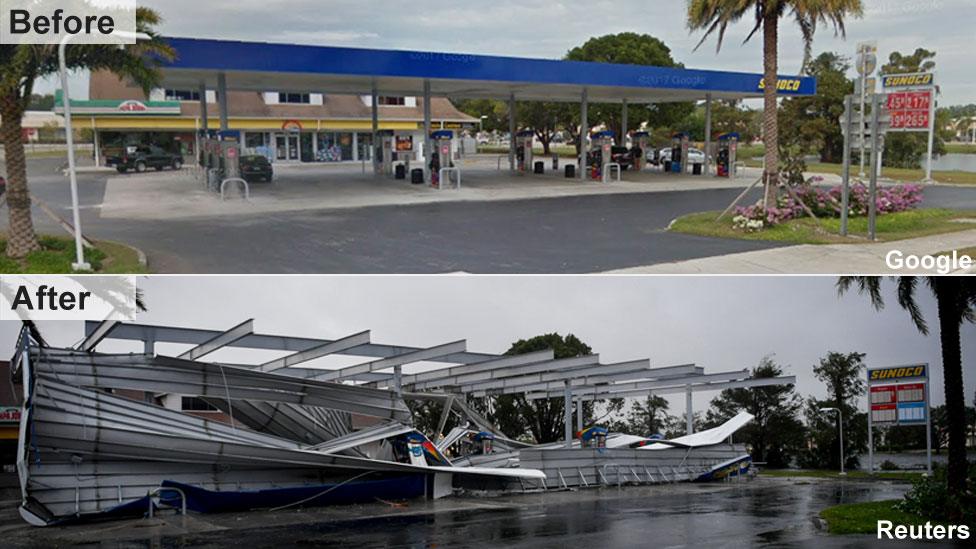
Before and after in Bonita Springs, Florida
Some three million people live in the Tampa Bay area. The region has not been hit by a major hurricane since 1921.
Irma made landfall on Marco Island off Florida's west coast at 15:35 local time (19:35 GMT) on Sunday, with winds of up to 120mph.
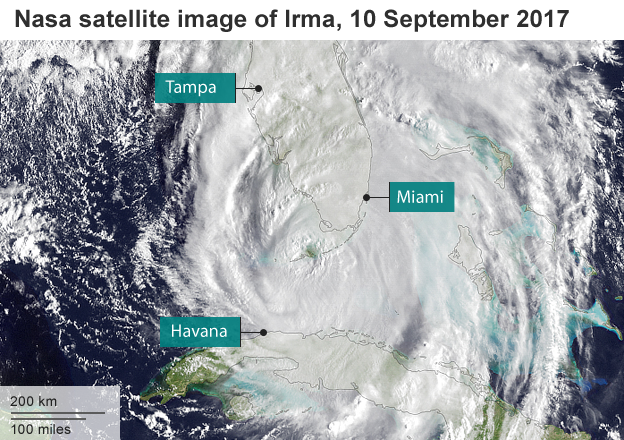
How have residents felt the impact?
"We feel the building swaying all the time," restaurant owner Deme Lomas told Reuters news agency by phone from his 35th-floor apartment in Miami.
At least four deaths have been connected to the storm:
Two police officers died when their vehicles collided in Hardee County in central Florida
A person died in a single-car crash near Orlando
A man died in the town of Marathon in the Florida Keys when his vehicle hit a tree on Saturday
Looters caught on camera in Miami
Some 6.3 million people in the state were told to evacuate before Irma arrived.
There is major disruption to transport, with Fort Lauderdale-Hollywood International Airport and Miami International Airport closed for Monday.
Curfews have been imposed areas such as in Miami, where 13 people were arrested on suspicion of looting.
Amateur footage shows flooding in central Miami
Which areas were hit before Florida?
Irma is the most powerful Atlantic storm in a decade, and caused widespread destruction on several Caribbean islands:
Cuba: at least 10 people were killed by the storm on the island, officials say. Electricity is out across the capital, Havana
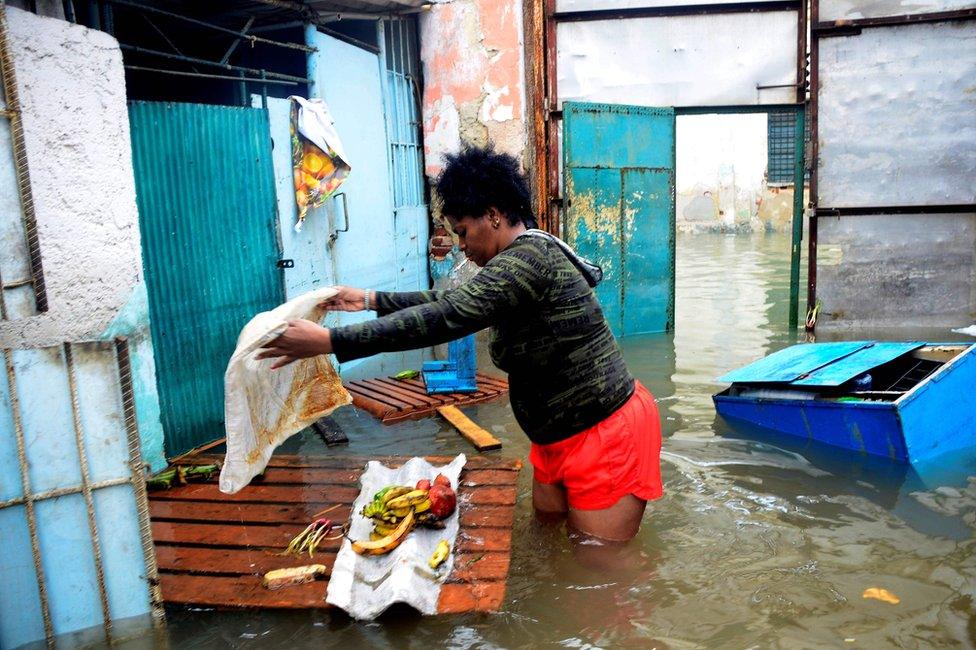
Parts of the Cuban capital Havana are under water
St Martin and St Barthelemy: Six out of 10 homes on St Martin, an island shared between France and the Netherlands, are now uninhabitable, French officials say. They said nine people had died and seven were missing in the French territories, while four are known to have died in Dutch Sint-Maarten
Turks and Caicos Islands: Widespread damage, although extent unclear
Barbuda: The small island is said to be "barely habitable", with 95% of the buildings damaged. Antigua and Barbuda Prime Minister Gaston Browne estimates reconstruction will cost $100m (£80m). One death has been confirmed
Anguilla: Extensive damage with one person confirmed dead
Puerto Rico: More than 6,000 residents of the US territory are in shelters and many more without power. At least three people have died
British Virgin Islands: Widespread damage reported, and five dead
US Virgin Islands: Damage to infrastructure was said to be widespread, with four deaths confirmed
Haiti and the Dominican Republic: Both battered by the storm, but neither had as much damage as initially feared
Irma continues to affect Florida
Another hurricane, Jose, has been weakening over the western Atlantic, external, with swells due to affect parts of Hispaniola (the island split into Haiti and the Dominican Republic), the Bahamas, and the Turks and Caicos Islands, later this week.

Are you in the region? Are you a holidaymaker unable to get a flight home or a resident who has been preparing for Hurricane Irma? If it is safe for you to do so, share your experiences by emailing haveyoursay@bbc.co.uk, external.
Please include a contact number if you are willing to speak to a BBC journalist. You can also contact us in the following ways:
WhatsApp: +447555 173285
Tweet: @BBC_HaveYourSay, external
Send pictures/video to yourpics@bbc.co.uk, external
Upload your pictures / video here, external
Send an SMS or MMS to 61124 or +44 7624 800 100
Please read our terms & conditions
- Published12 September 2017
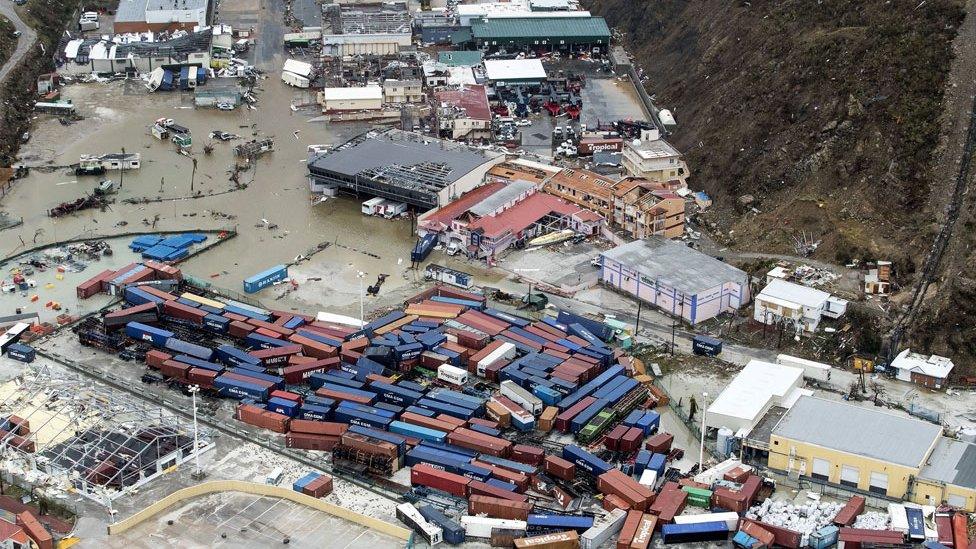
- Published11 September 2017
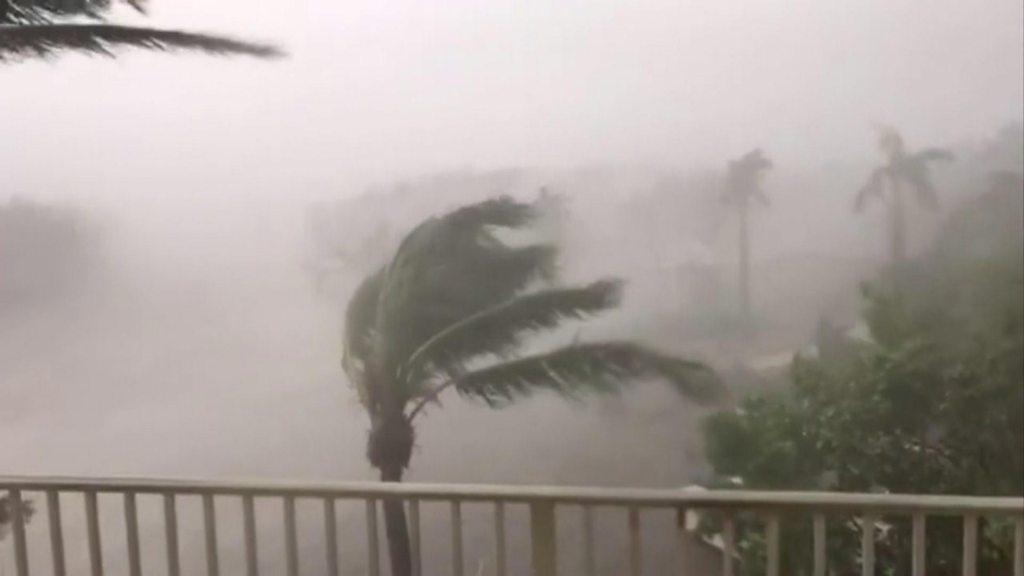
- Published11 September 2017
- Published11 September 2017
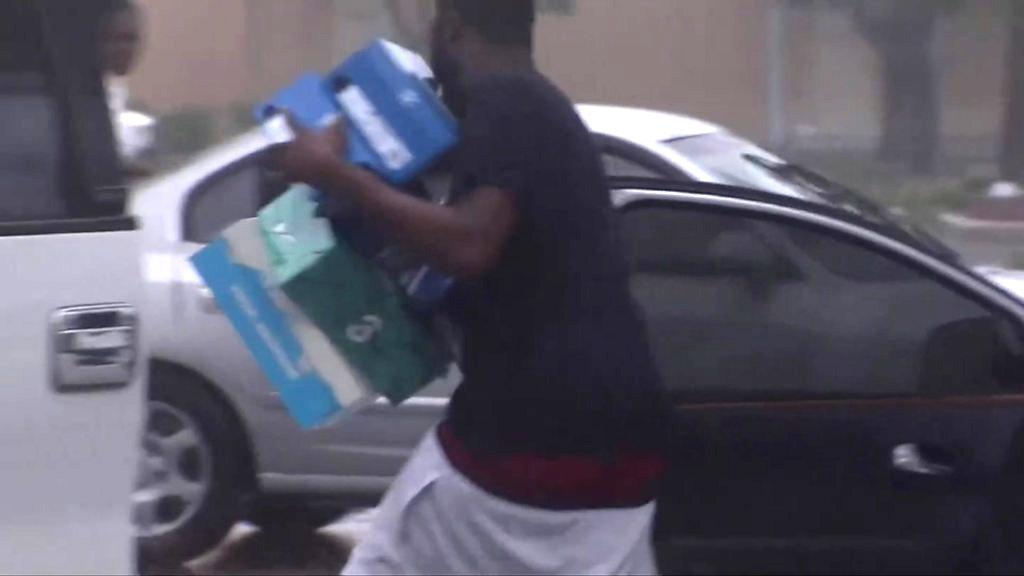
- Published11 September 2017
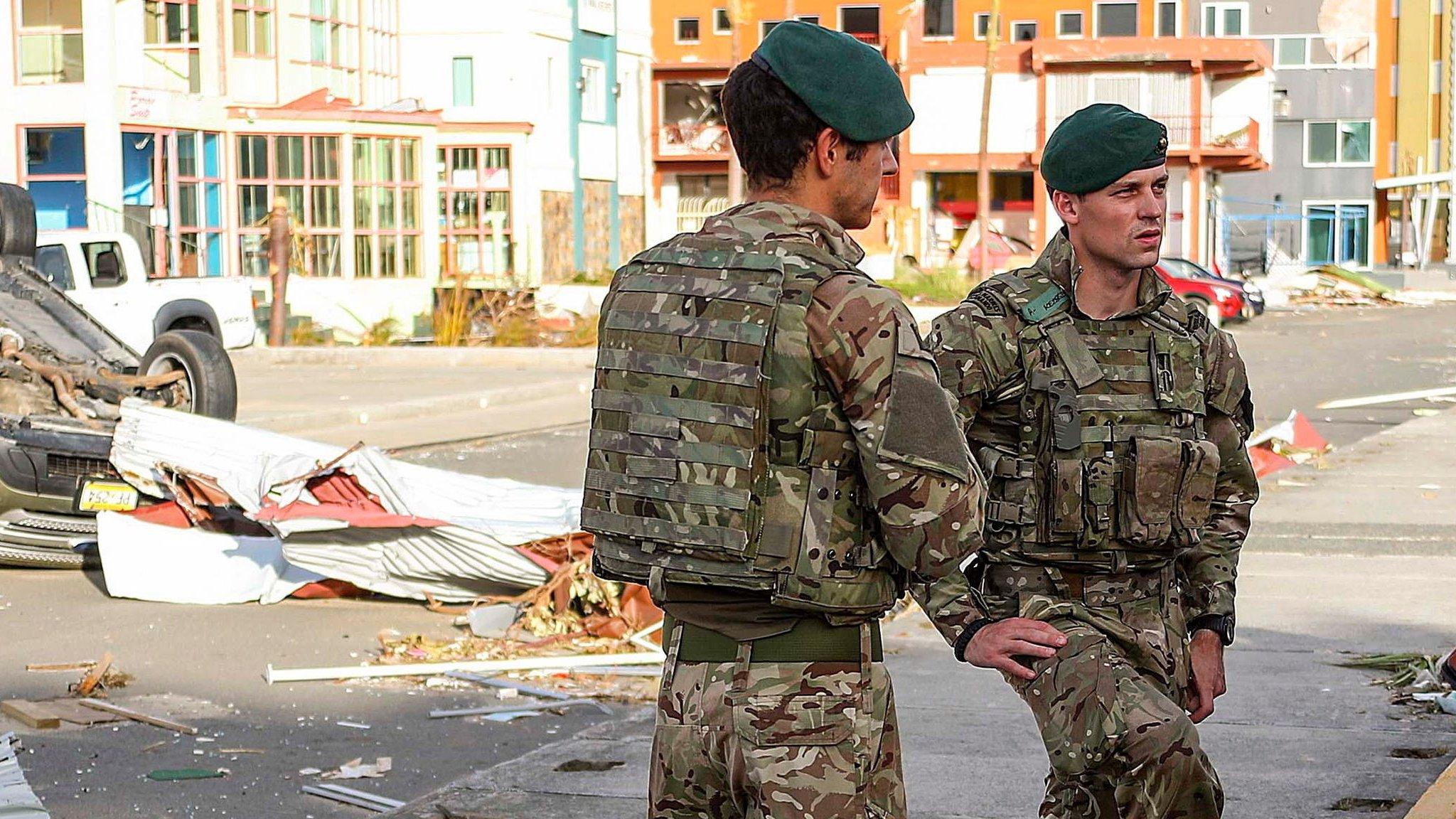
- Published10 September 2017

- Published9 September 2017
